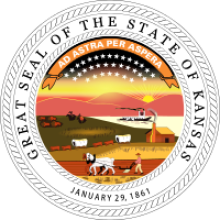Image


encourage the development and widespread use of technological advances in providing video, telecommunications and broadband services at competitive rates; and ensure that video, telecommunications and broadband services are each provided within a consistent, comprehensive and nondiscriminatory federal, state and local government framework.Yet the bill does nothing but discourage investment, with no explanation of how prohibiting some approaches will lead to more investment or better services. It does not enable any new business models, rather it outlaws one possible source of competition for existing providers. The bill contains what will appear to the untrained eye to be an exemption for unserved areas. However, the language is hollow and will have no effect in protecting those who have no access from the impact of this bill. The first problem is the definition of unserved. A proper definition of unserved would involve whether the identified area has access to a connection meeting the FCC's minimum broadband definition delivered by DSL, cable, fiber-optic, fixed wireless or the like. These technologies are all capable of delivering such access. However the bill also includes mobile wireless and, incredibly, satellite access. As we have noted on many occasions, the technical limits of satellite technology render it unfit to be called broadband, even if it can deliver a specific amount of Mbps. Satellite just does not allow the rapid two-way transmitting of information common to modern Internet applications. Mobile wireless comes with high costs, prohibitively low monthly caps, and often only works in some areas of a rural property. This is not a proper measure of having access to the Internet. The second problem with the fake unserved exemption is the challenge of demonstrating an area meets it. If one suspected that a territory with over 90% of the residents did not meet the overly broad definition, one would have to engage in an expensive survey to prove it at the census block level. Data is not ordinarilly collected at that granular level - and even when it is, it is often based on unverified claims by existing carriers. Even if anywhere in Kansas qualified as unserved under this definition, the cost of proving it would only add to the extremely high cost of building to such a low density population, breaking any business plan that could attempt it. This is not the absolute most restrictive bill we have seen revoking local authority to build networks, but it is second. It does allow communities to build networks for public purposes, including schools, which is the differentiator in this case.
 These types of bills make a mockery of our political system. Whether to invest in essential infrastructure (or how to) is a decision that should be made at the local level, where people know how their unique mix of assets and challenges relate to ensuring everyone has fast, affordable, and reliable access to the Internet. There is no need for the state or federal authority to overrule local decision-making. The only reason we see it popping up in state after state (most recently Georgia) is because powerful cable and telephone companies want to ensure they face no competition - even in the most rural areas of the country.
This is not a matter of taxes. As we note in a recent fact sheet, most community networks have not used taxpayer dollars. Meanwhile, the cable and telephone companies have a history of benefits from the public sector, from ongoing subsidies to having built their networks originally as monopolies protected from competition.
For those new to this issue, I highly recommend our fact sheets on community networks, videos, and our interactive map of community networks.
We have covered many stories in Kansas over the years, including the network in Chanute that has helped many local businesses (see our case study) and a more recent investment by the city of Ottawa.
We will provide ongoing coverage as this bill moves forward.
These types of bills make a mockery of our political system. Whether to invest in essential infrastructure (or how to) is a decision that should be made at the local level, where people know how their unique mix of assets and challenges relate to ensuring everyone has fast, affordable, and reliable access to the Internet. There is no need for the state or federal authority to overrule local decision-making. The only reason we see it popping up in state after state (most recently Georgia) is because powerful cable and telephone companies want to ensure they face no competition - even in the most rural areas of the country.
This is not a matter of taxes. As we note in a recent fact sheet, most community networks have not used taxpayer dollars. Meanwhile, the cable and telephone companies have a history of benefits from the public sector, from ongoing subsidies to having built their networks originally as monopolies protected from competition.
For those new to this issue, I highly recommend our fact sheets on community networks, videos, and our interactive map of community networks.
We have covered many stories in Kansas over the years, including the network in Chanute that has helped many local businesses (see our case study) and a more recent investment by the city of Ottawa.
We will provide ongoing coverage as this bill moves forward.